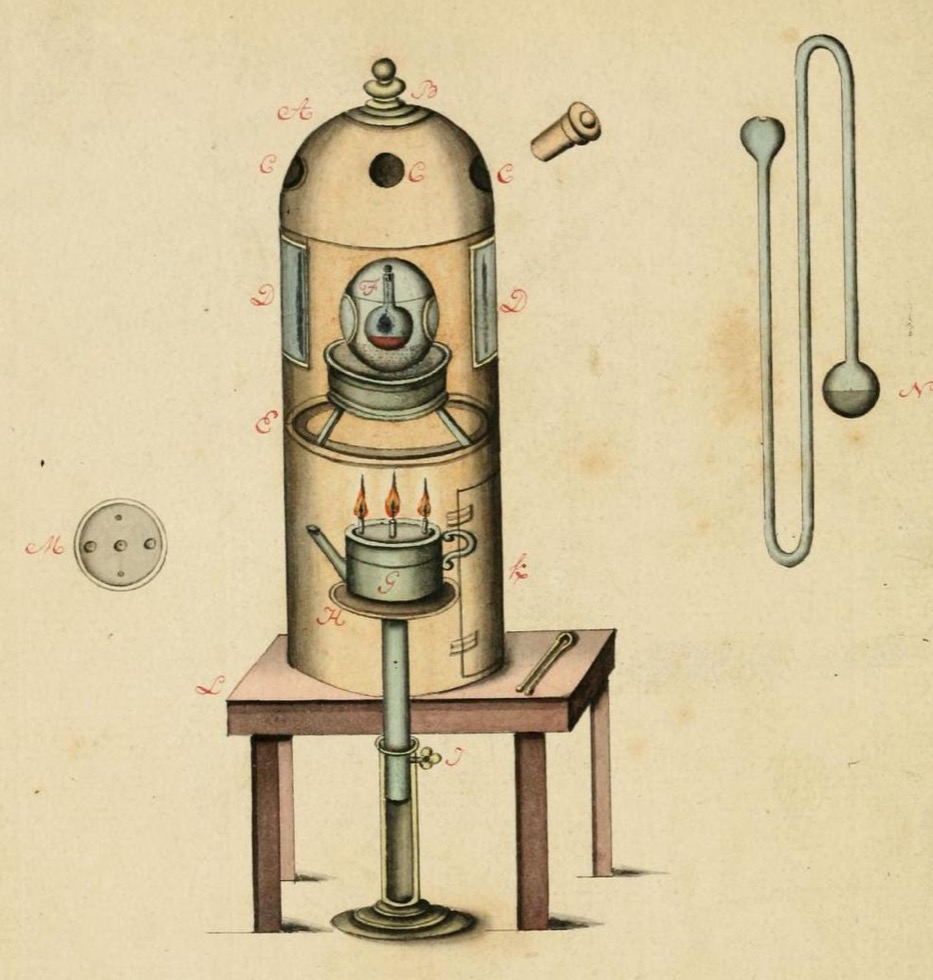
Diagram of an alchemist’s furnace, 17th Century. From Manly P. Hall’s collection of alchemical manuscripts, Box 18, MS 102, v. 6. Source: Getty Research Institute



Diagram of an alchemist’s furnace, 17th Century. From Manly P. Hall’s collection of alchemical manuscripts, Box 18, MS 102, v. 6. Source: Getty Research Institute
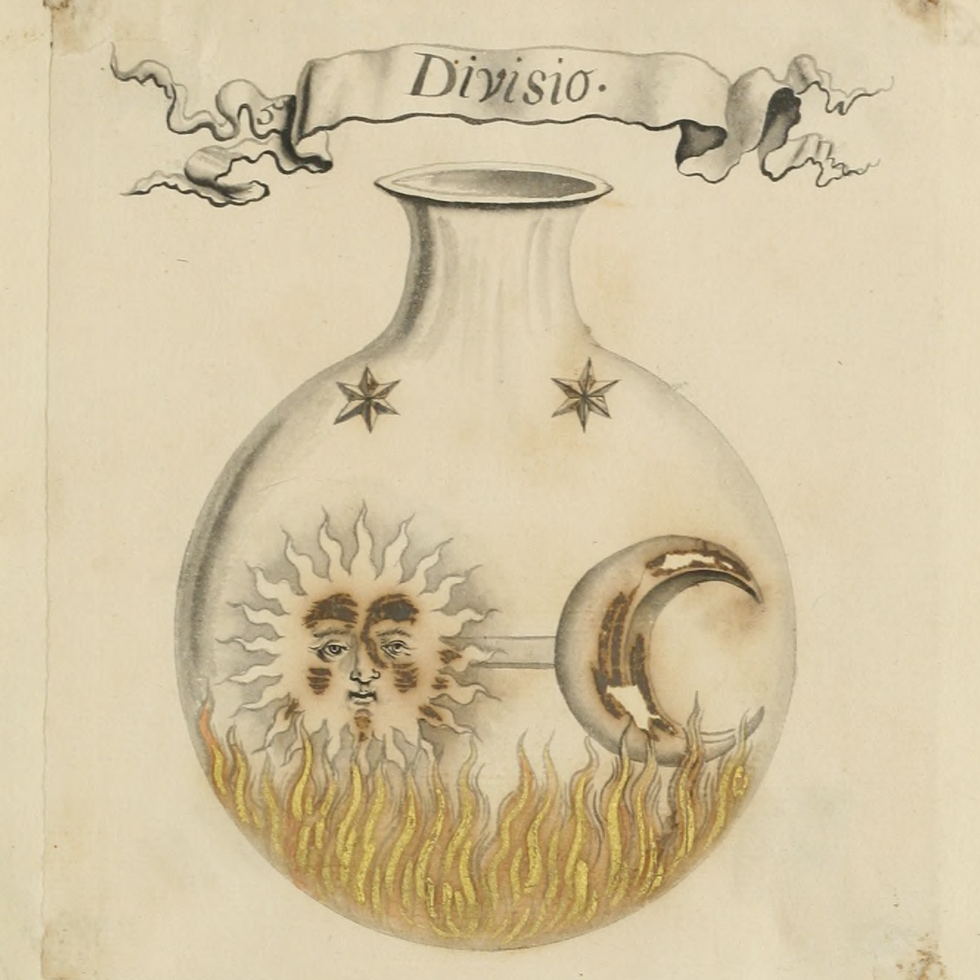
Diagrams of Alchemical Processes from Das Buch mit Sieben Siegeln, Anonymous, ca. 1700. From Manly P Hall’s Collection of Alchemical Manuscripts, Box 4.MS 19.Vol 2
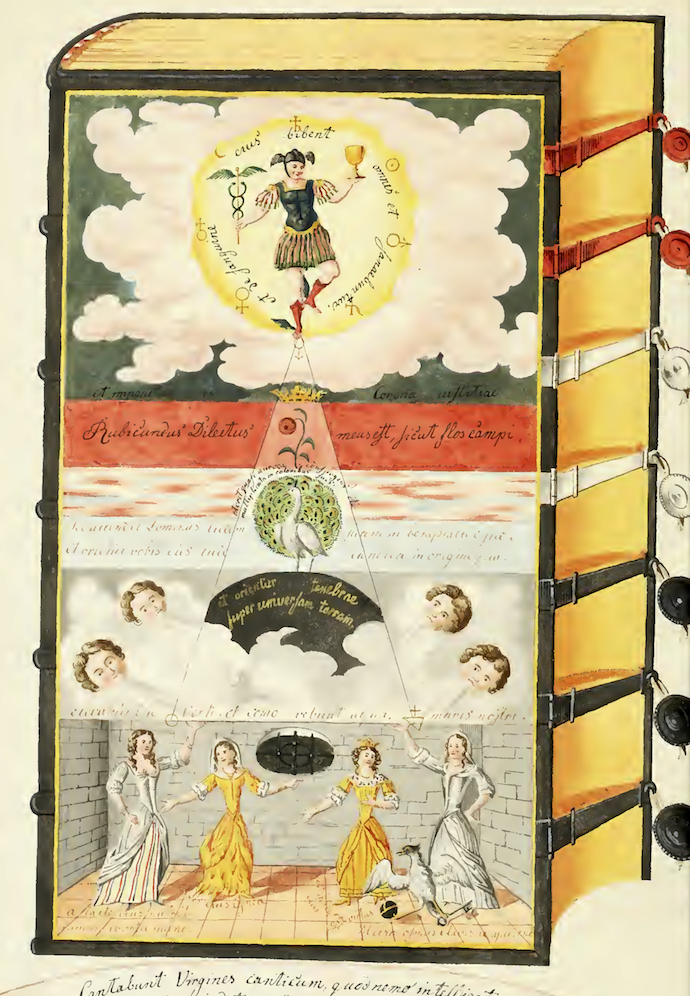
Title page of De Arte divina & sacra, sine Aenigmate tradita & del praxin conscripta by Anonymous, ca. 1700. At the top of the painting you can see the Greek God Hermes, representing the element Mercury, the peacock representing the end of the Nigredo stage, and the element of air, represented by the faces blowing. From Manly P. Hall’s collection of alchemical manuscripts Box 3, MS 14

Drawings from F. de La Rose-croix by Anonymous, circa 1700. Alchemy is sometimes referred to as ‘The Language of Birds’ due to different birds representing different stages in the alchemical process. Source: Manly P. Hall’s Collection of Alchemical Manuscripts Box 5

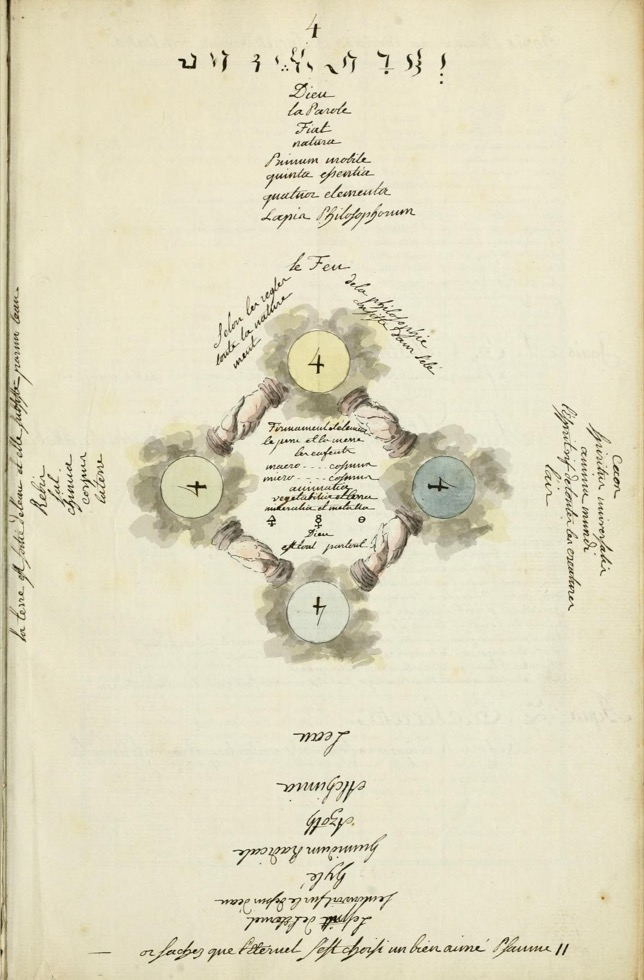
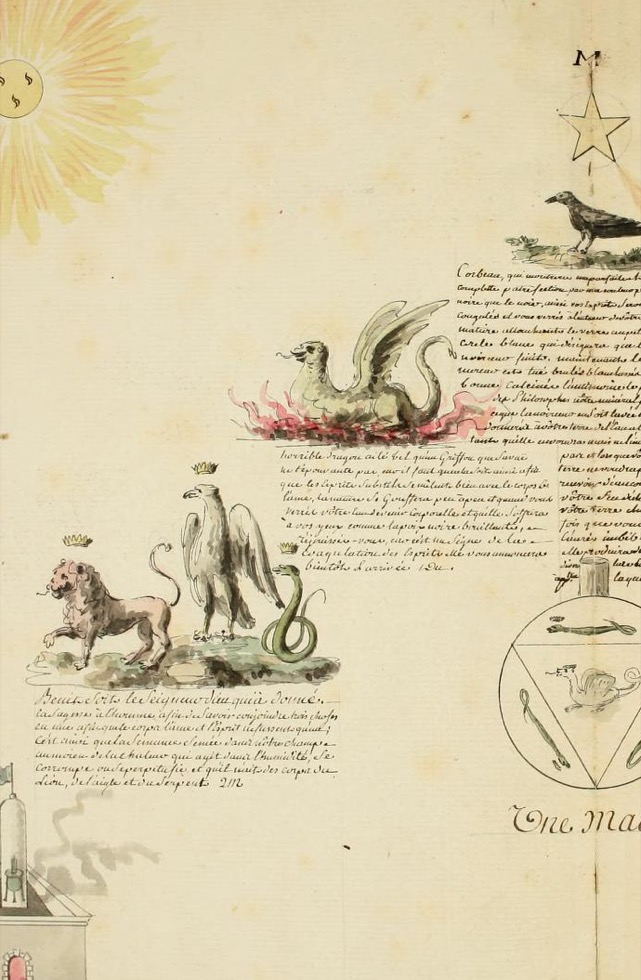
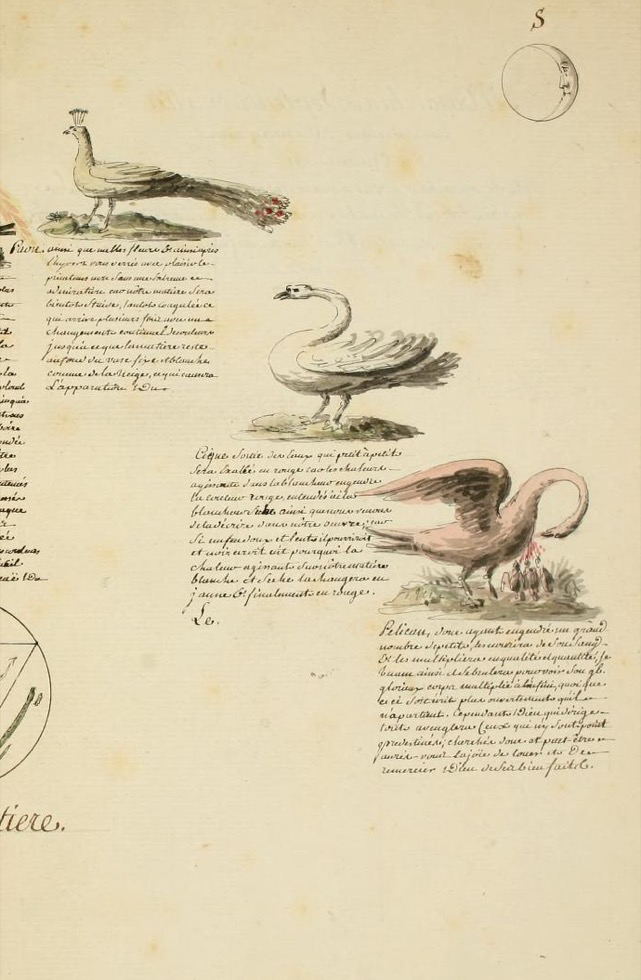
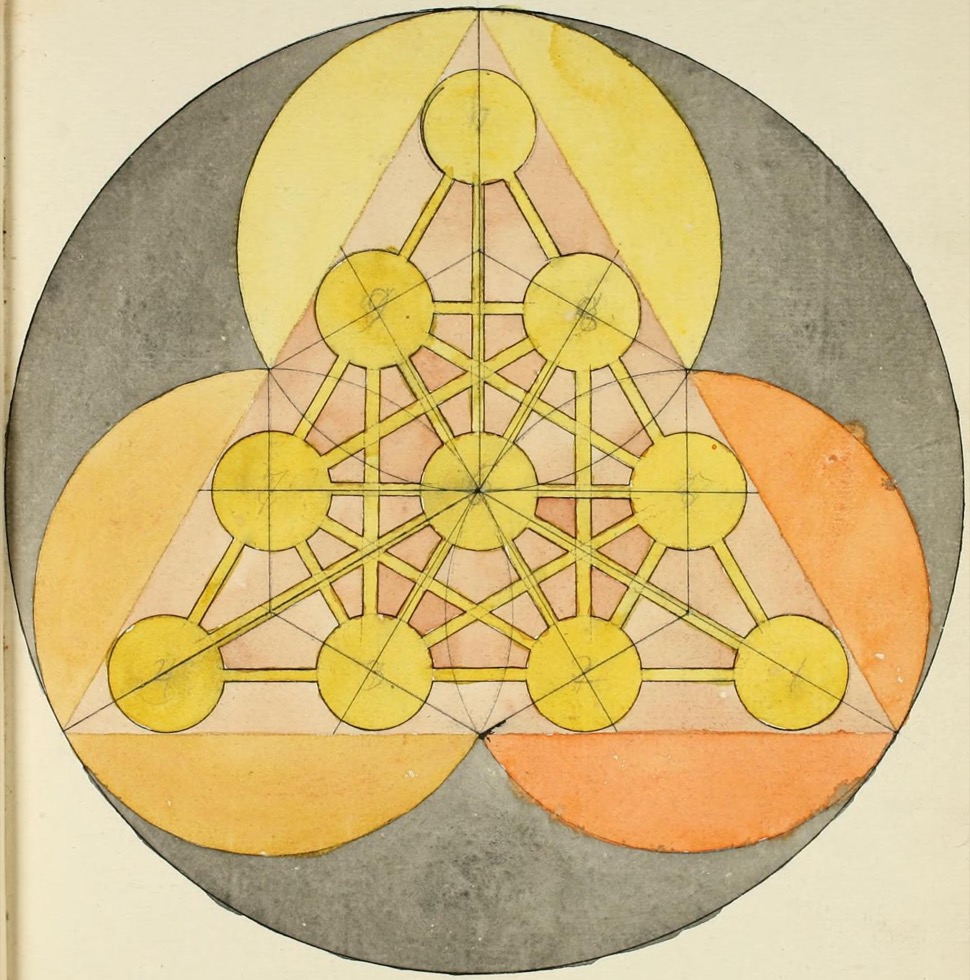
Drawings and watercolor paintings of sacred geometry from Cabala, Unknown Author, 1700. The manuscript contains 13 images, a holy number that represents the oneness of God for the Jewish people, with no accompanying text, and prominently features a Star of David or hexagram. From: Manly P. Hall’s Collection of Alchemical Manuscripts, Box 17 MS 71

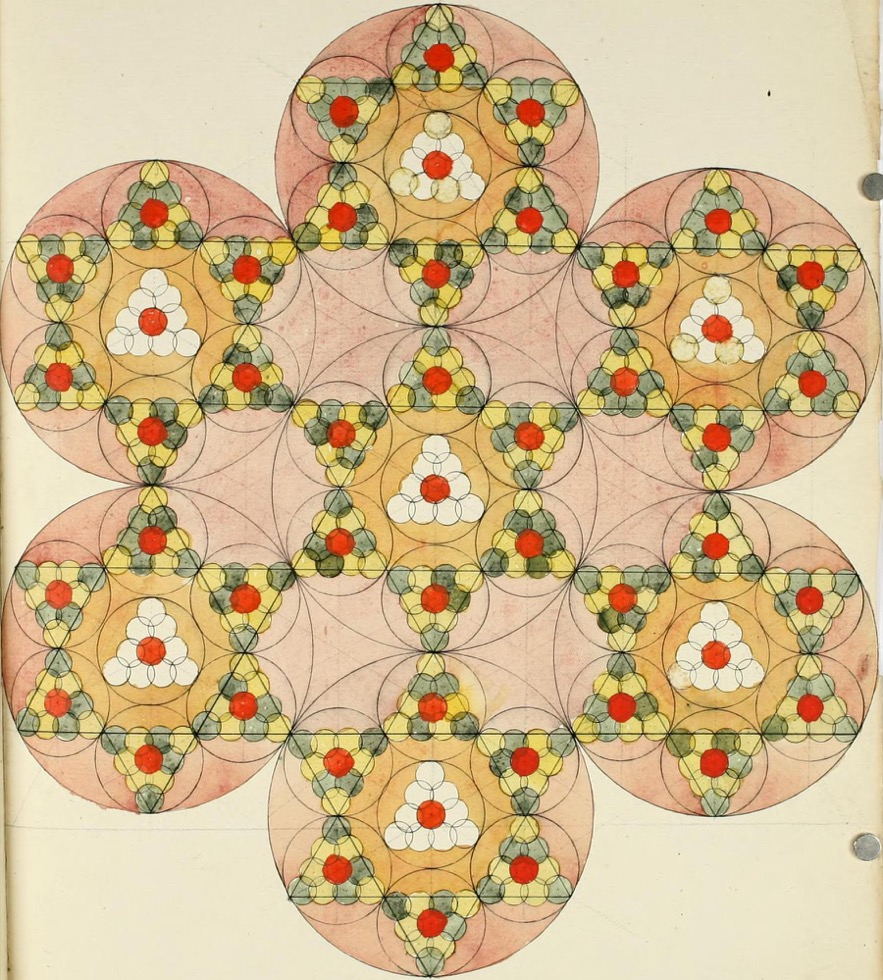
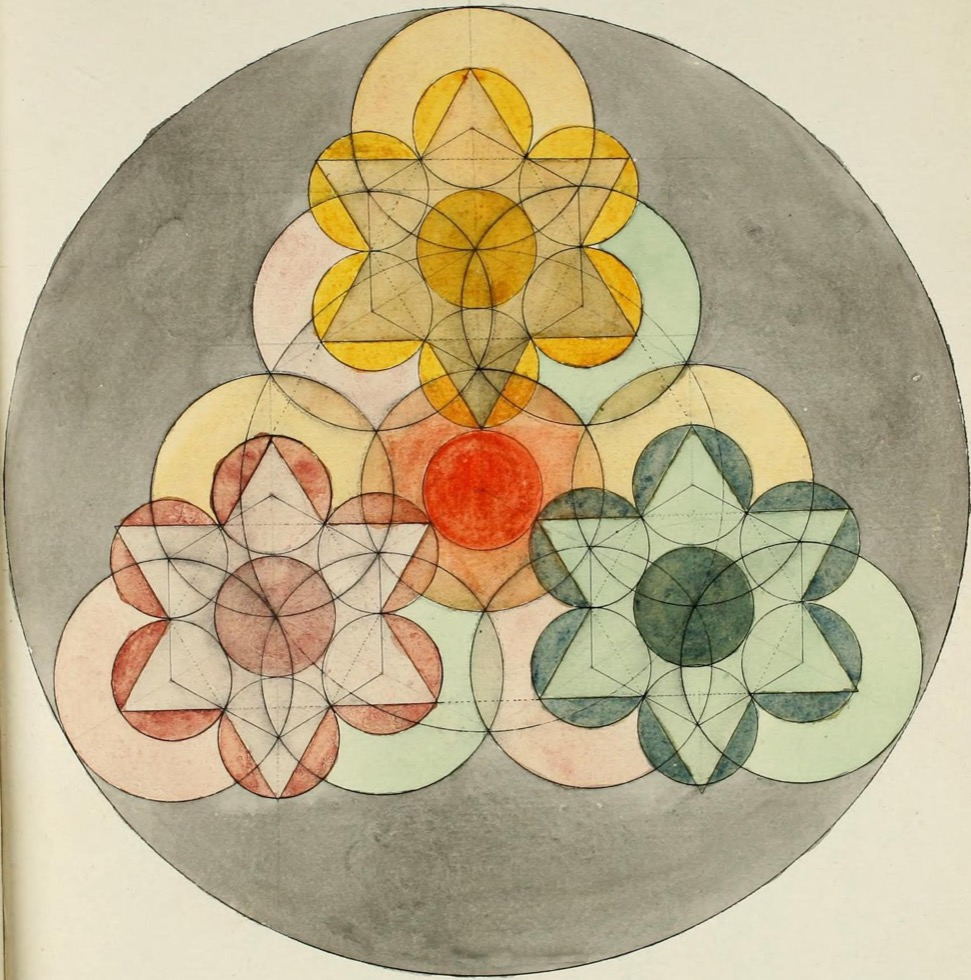
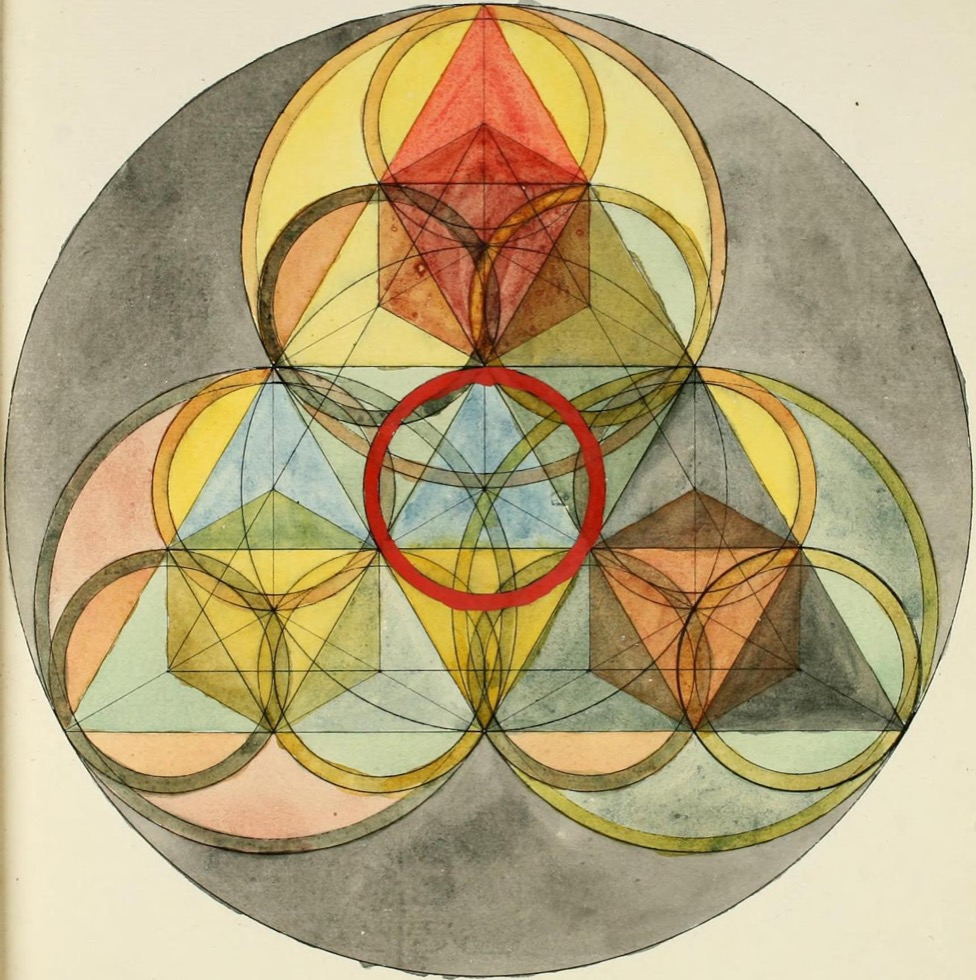
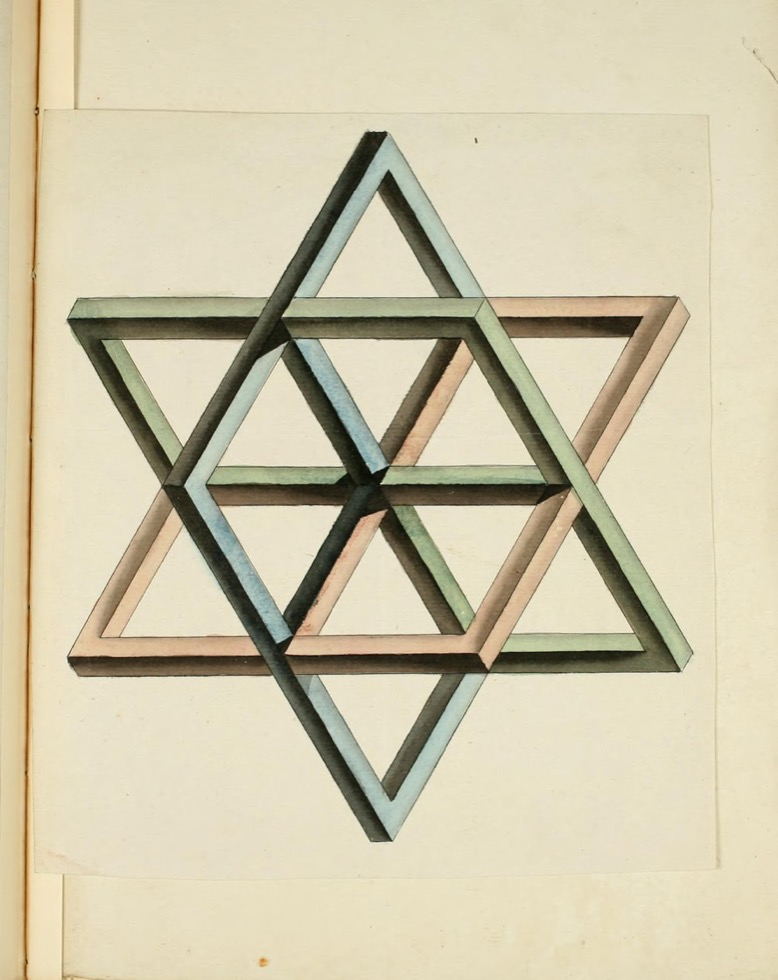
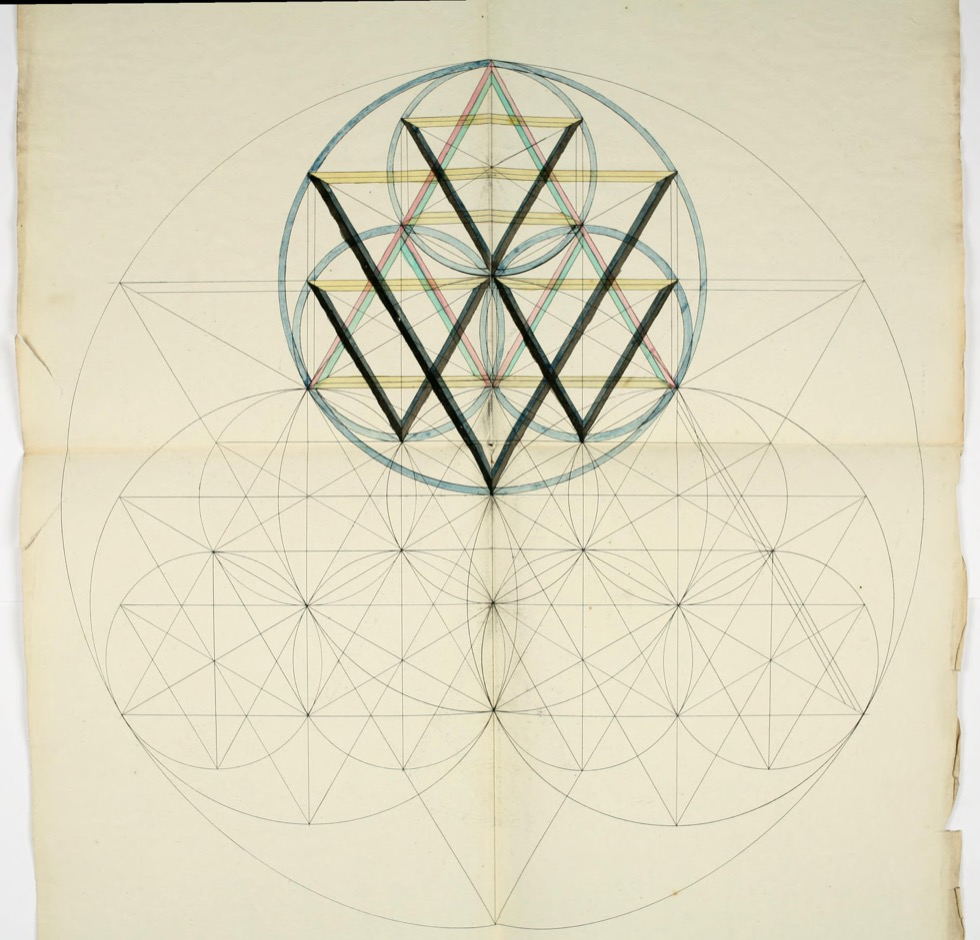
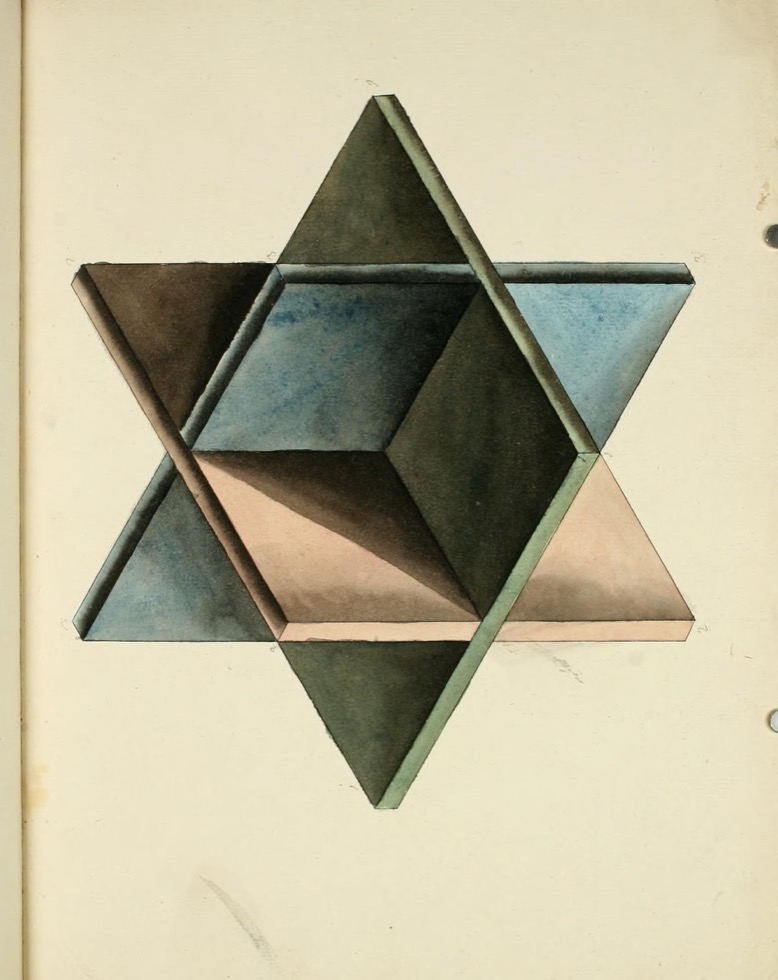
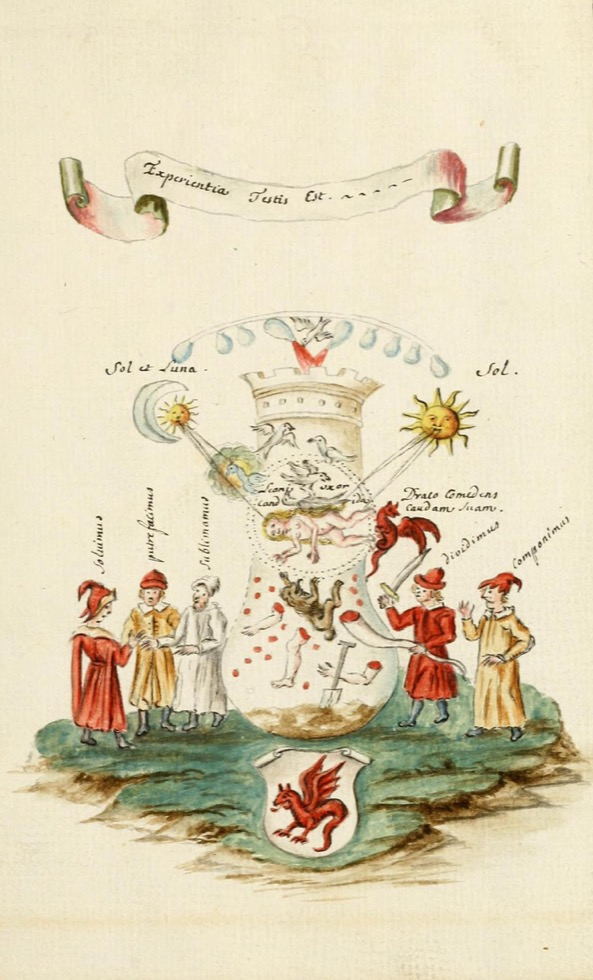
Alchemical art from Les Vaissevax D’Hermes, 1700. Source: Manly P. Hall’s collection of alchemical manuscripts, Box 14
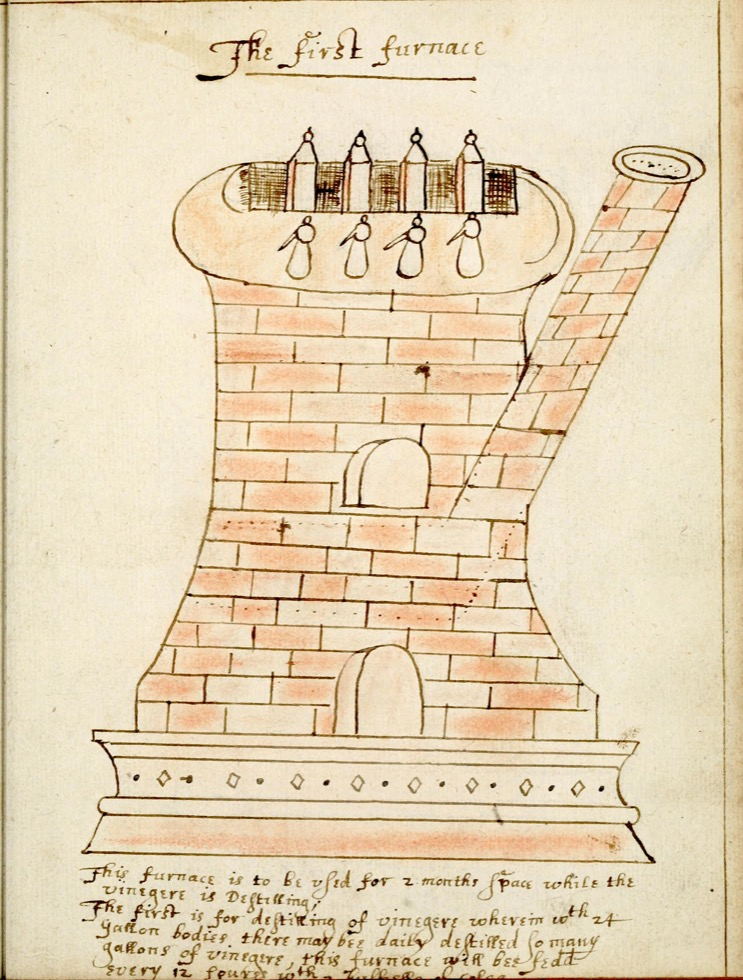
Diagrams of alchemical furnaces in The Key of Alchemy by Samuel Norton, 1577. I love how amateur these look, it’s from a handwritten manuscript, so perhaps they’re placeholder drawings. From Manly P. Hall’s collection of Alchemical Manuscripts. Box 18, MS102, v10

Emblems from Manly P. Hall’s collection of alchemical manuscripts, 1600, Box 4, MS 19. From: archive.org
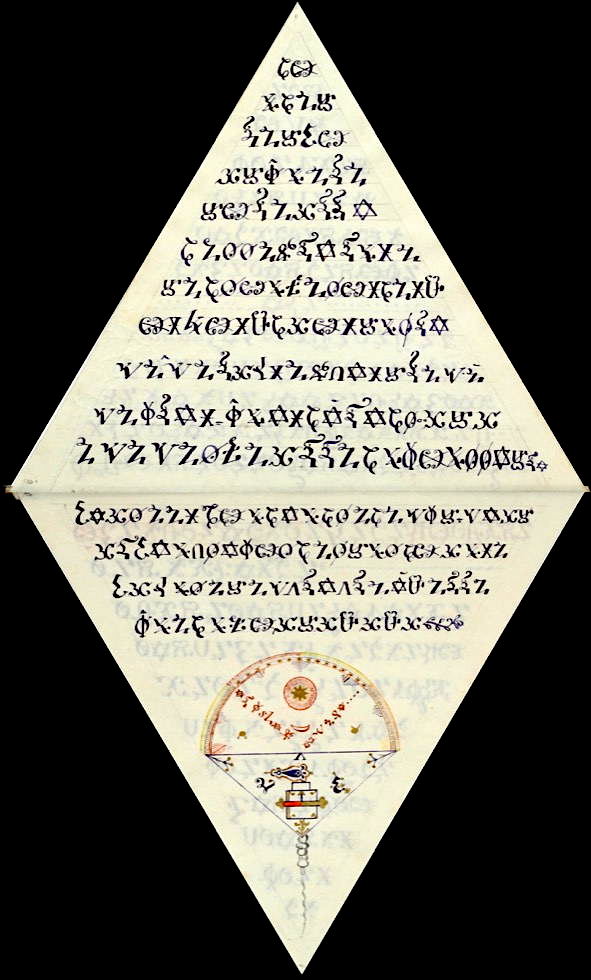
The Triangular Book of St. Germain Is a French manuscript written in code. When deciphered, it gives instructions on how to use magic to locate treasure and prolong your life, which requires a special amulet. The shape is thought to ensure the spirits called will be honest and dutiful. From Manly P. Hall’s collection of Alchemical Manuscripts, Box 34 MS. 209, 1750.
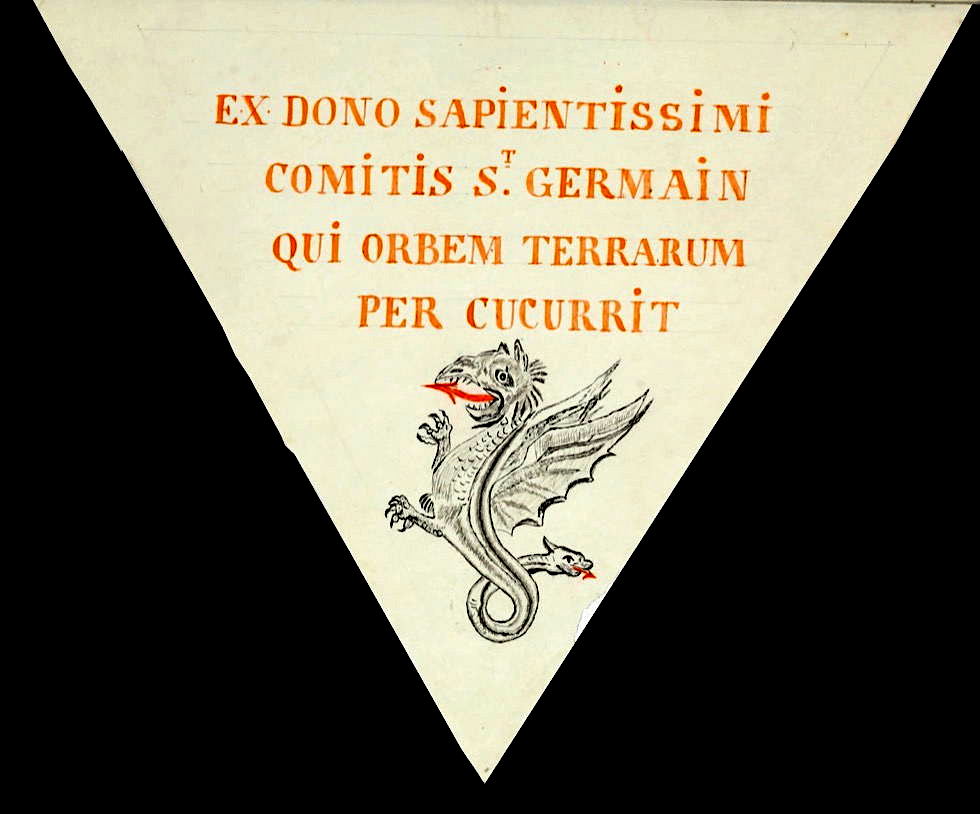
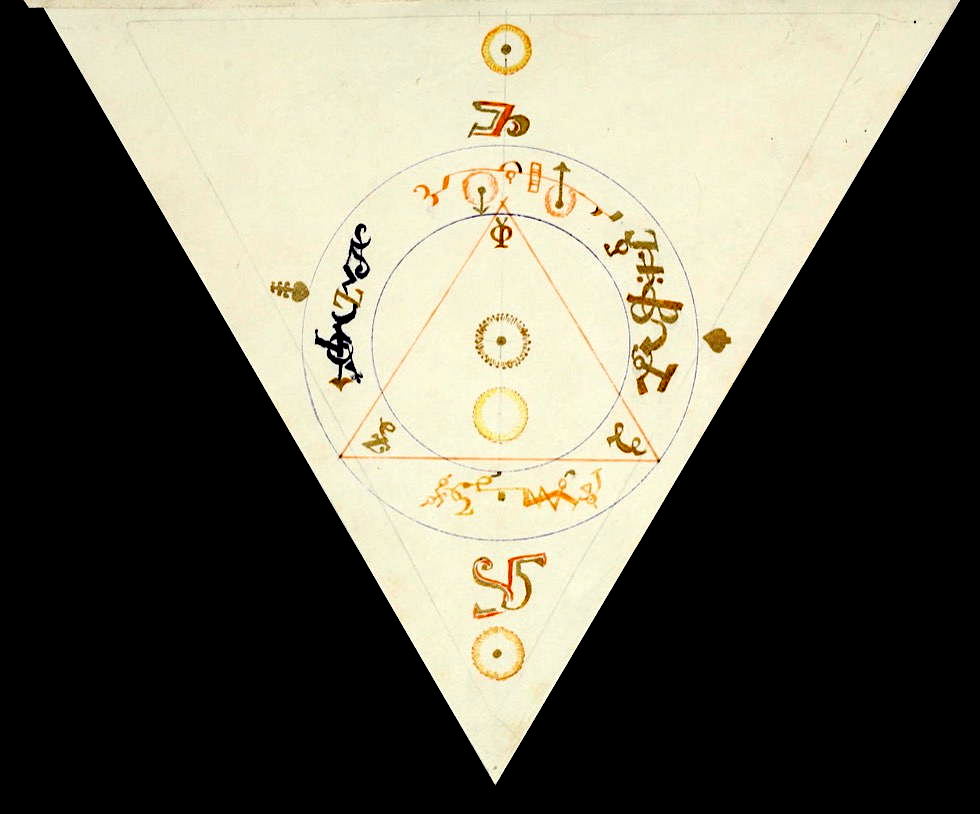
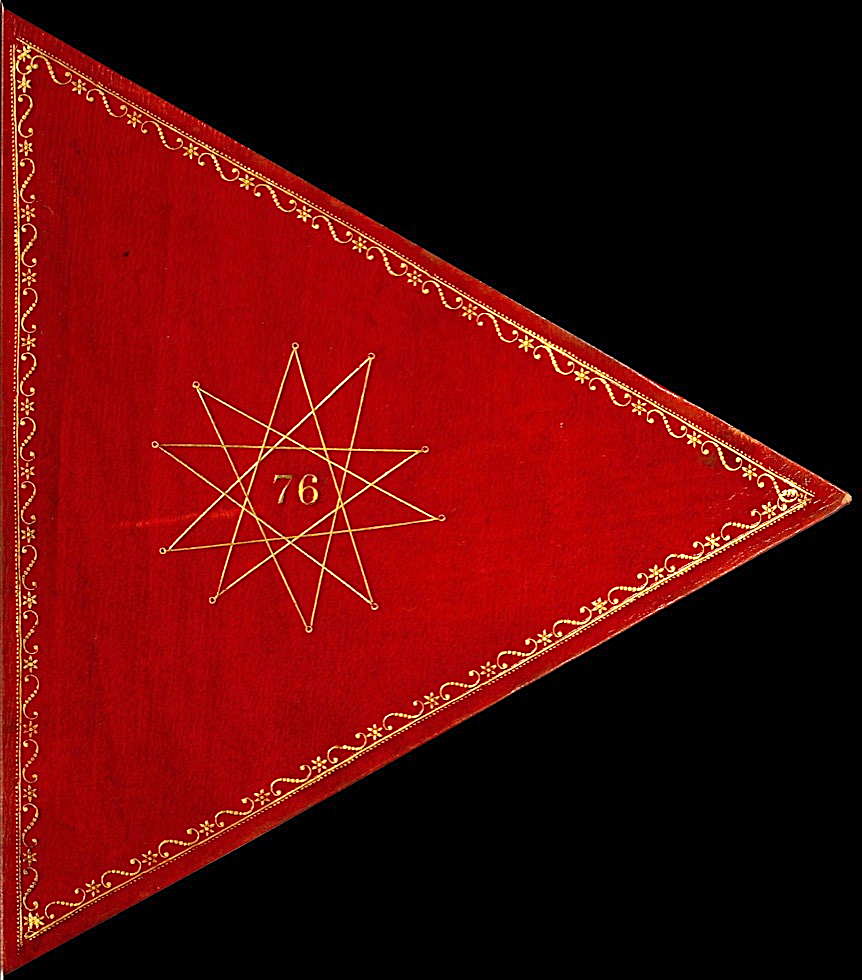

– Manly P. Hall